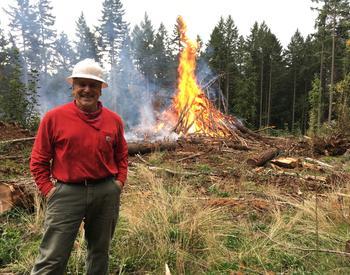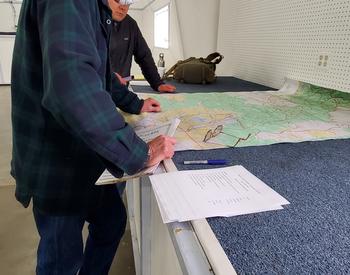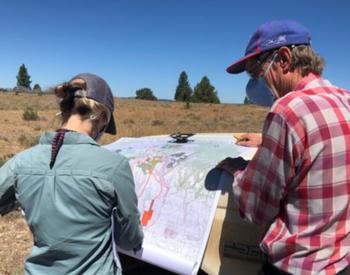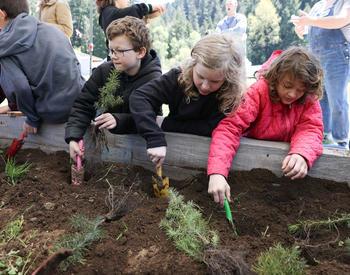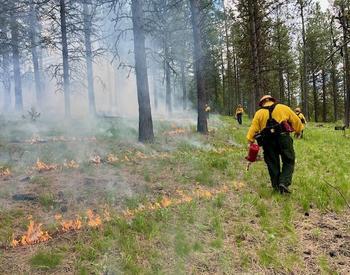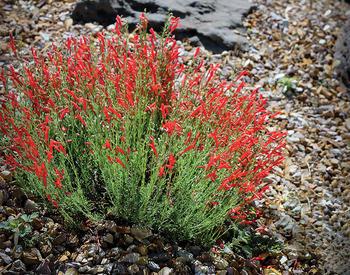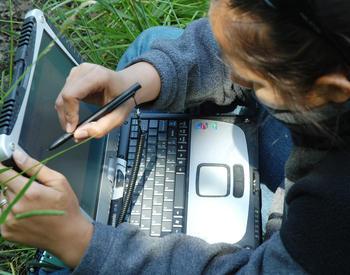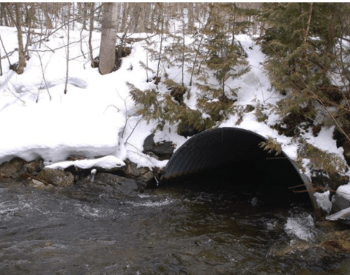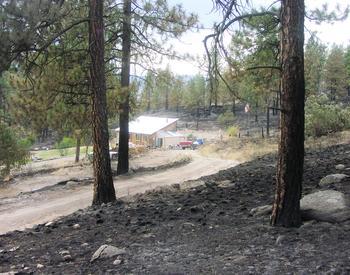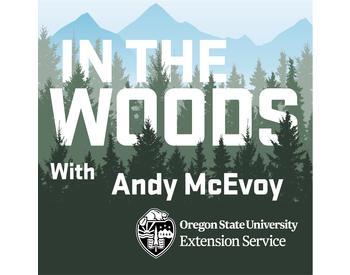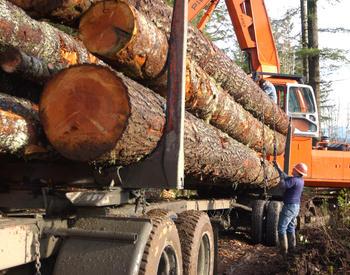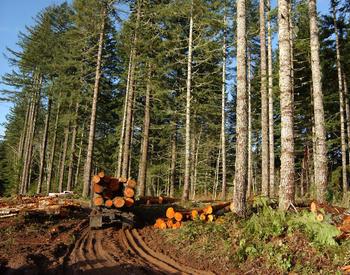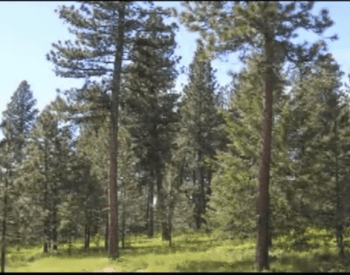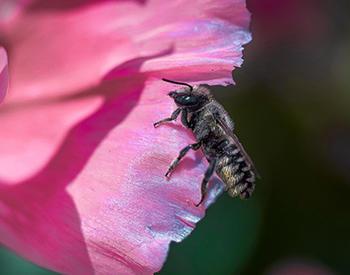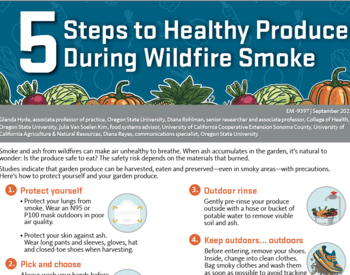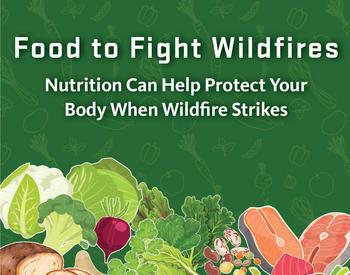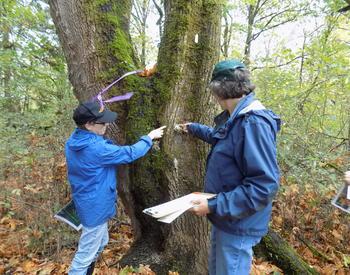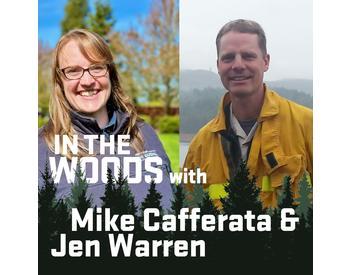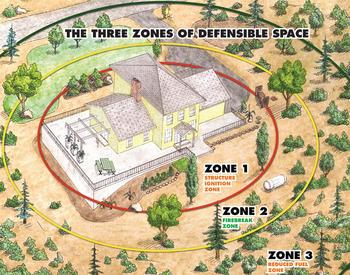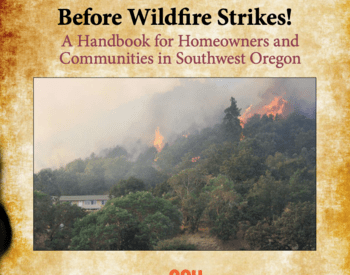I live in a forested area of Deschutes County. I think that deadfall (cut trunks laying on the forest floor) left to decompose improves the health of the forest, but I am wondering if it also increases fire risk.
Great question! It's an "it depends" kind of situation.
Course woody debris
Dead trees on the ground are often referred to as coarse woody debris (CWD). CWD provides the following benefits to forests:
- Returns carbon and nutrients to the soil
- Creates a habitat for many different living creatures
- Retains moisture
- Provides shade for young plants
CWD can significantly contribute to the amount of "fuel" that can burn if a fire approached, however large CWD is more difficult to catch on fire than smaller debris like pine needles and twigs. Therefore, CWD does not contribute as much to quick-fire spread but can be more difficult to put out once on fire.
If the conditions are right for CWD to burn (fire is hot enough, there is other fuel nearby that can spread fire to it, dry conditions, wind, and other factors), it can burn hotter and for a longer time than small debris. If the CWD is in direct contact with the forest floor, it can cook the soil.
Fire cycles in dry forests
The forests around Deschutes County are considered dry forests and are adapted to centuries of low severity fire. The dryness contributes to the slower decay of downed dead trees. In the past, natural fire cycles would help cycle the carbon and nutrients by burning up the CWD, supporting soil development and fertility. Today, some places around the county have more CWD than they would have naturally due to a century of fire suppression and other factors. In these conditions, lots of CWD can contribute to extreme wildfire conditions.
In other words, CWD is great for forest health but not when there is an unnaturally large amount of it. Check out this publication on forest health, wildlife habitat and fuels reduction in dry pine forests: Wildlife-Friendly Fuels Reduction, Woodland Fish and Wildlife
